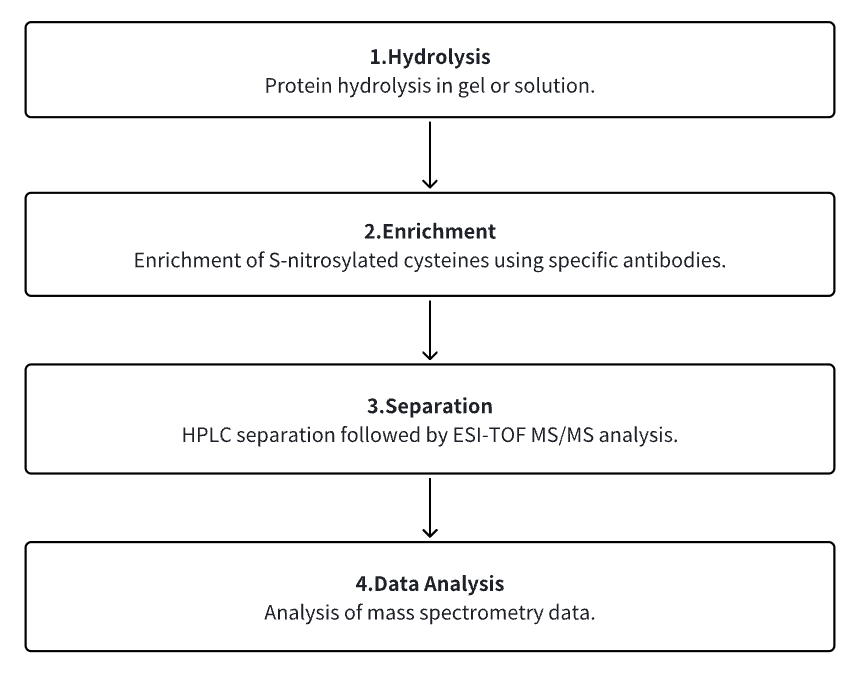S-Nitrosylation Analysis Service
S-nitrosylation (SNO) is the covalent attachment of some nitroso (NO) groups to sulfhydryl residues (S) in proteins, forming S-nitrosothiols (SNOs). These groups are subsets of specific cysteine residues, leading to the formation of S-nitrosylated proteins. SNOs have a short half-life in the cytosol due to various reductases, such as glutathione (GSH) and thioredoxin, which act to remove the nitroso groups. Therefore, SNOs are predominantly stored in protected environments like plasma membranes, vesicles, intercellular substance, and the folds of lipophilic proteins to prevent denitrosylation. For instance, caspases involved in apoptosis are stored as SNOs within the intermembrane spaces of mitochondria.
SNO process is reversible, with denitrosylation, an enzyme-catalyzed reaction, reversing the modification. SNO is selective, targeting specific cysteine residues. Improper SNO can result in protein misfolding, synaptic damage, and apoptosis. Furthermore, abnormalities in SNO signaling are associated with the development of diseases such as Alzheimer's and cardiovascular conditions.
Given the challenges in detecting S-nitrosylated cysteines due to the instability of SNOs and the presence of multiple cysteines in proteins, MtoZ Biolabs offers an advanced, sensitive analytical platform for analyzing S-nitrosylated cysteines in both eukaryotic and prokaryotic systems. We have also enhanced our detection methods to provide quicker and more sensitive analyses of these modifications.
Analysis Workflow
1. Protein Hydrolysis in Gel or Solution
2. Enrichment of S-Nitrosylated Cysteines Using Specific Antibodies
3. HPLC Separation Followed by ESI-TOF MS/MS Analysis
4. Mass Spectrometry Data Analysis

Services at MtoZ Biolabs
1. Ion Chromatography
2. High-Performance Liquid Chromatography (HPLC)
3. Matrix-Assisted Laser Desorption/Ionization Mass Spectrometry (MALDI-MS)
How to order?







